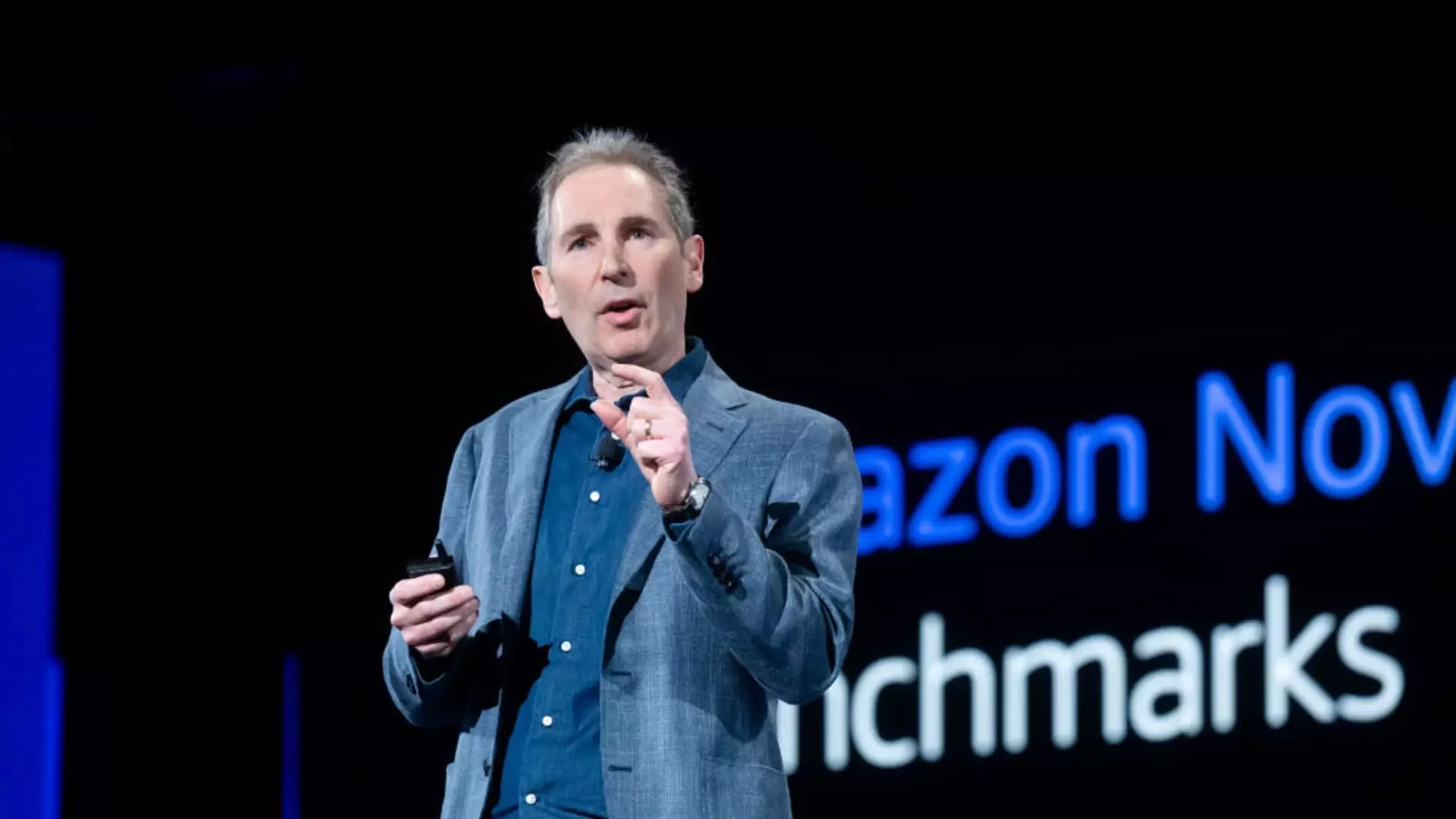In an era defined by technological acceleration, Amazon is staking its future on artificial intelligence (AI). Earlier this month, the e-commerce giant announced its intent to ramp up capital expenditures (capex) to an astounding $100 billion by 2025. This ambitious goal notably surpasses last year’s $83 billion expenditure and highlights Amazon’s aggressive strategy to dominate AI technologies.
The announcement comes from a broader strategy envisioned by CEO Andy Jassy, who previously indicated in October that the company’s capex would exceed prior figures, driven prominently by advancements in generative AI. During a recent call with investors, Jassy pointed out that the company spent $26.3 billion in capex during the fourth quarter, a figure he believes is indicative of what might be expected as an annualized rate for 2025.
Such a massive investment underscores a critical pivot in Amazon’s operational focus—predominantly towards enhancing its Amazon Web Services (AWS) offering, an area where competition continues to heat up with industry heavyweights. Jassy emphasized the significance of this spending, suggesting that the majority will be utilized directly in the AI realm and its supporting infrastructure.
The urgency behind Amazon’s investment lies in responding to an explosive demand for generative AI solutions. The release of OpenAI’s ChatGPT in late 2022 ignited a frenzy in the tech landscape, propelling a wave of new AI capabilities and market entrants. In line with this trend, Amazon has launched a diverse portfolio of AI products, including Nova models, Trainium chips, and a shopping chatbot, alongside a platform called Bedrock designed for third-party AI model creators.
What is noteworthy is that Amazon’s competition extends beyond just features; it is a battle for data center capabilities and superior compute resources that can handle intricate AI workloads. Other prominent tech firms are adopting similar strategies, with Google’s Alphabet earmarking approximately $75 billion for capex in 2023 and Microsoft planning an $80 billion investment in 2025 specifically for data center enhancements. Meta is also in the fray, aiming to allocate up to $65 billion toward expanding its AI infrastructure.
Amid all this technological fervor, the announcement did not come without its challenges. Amazon provided a mixed financial report for the fourth quarter, which revealed stronger-than-expected earnings yet projected weaker sales for the upcoming period—a factor that sent shares tumbling by over 4% in after-hours trading.
In a turbulent market where investors are becoming more discerning about technology firms’ spending, Jassy reassured stakeholders by labeling the current climate as a “once-in-a-lifetime type of business opportunity.” He expressed confidence that the long-term benefits of pursuing such aggressive capital investments in AI would ultimately pay off for customers and shareholders alike.
Furthermore, the competitive landscape is shifting as new players emerge, notably Chinese AI start-up DeepSeek, which claims to have developed its AI model in an impressively short period with minimal costs. This revelation raises questions about the sustainability and effectiveness of massive AI investments from established giants like Amazon. As market confidence fluctuates, tech companies—particularly those heavily reliant on AI infrastructure—are under scrutiny regarding whether their financial commitments will yield commensurate returns.
The ramifications of such developments are significant. The recent launch of DeepSeek alone had a profound impact on technology share prices, contributing to substantial market corrections affecting companies like Nvidia and Broadcom, which collectively lost around $800 billion in market value.
Amazon’s decision to significantly increase its capital expenditures signals a bold pivot towards AI as the cornerstone of its future growth strategy. As the battle for AI supremacy intensifies, it remains to be seen whether Amazon’s investments will bear fruit or whether emerging competitors will reshape the market landscape. Ultimately, this high-stakes gamble by Amazon may redefine not just its trajectory but the entire tech industry in the coming years.

